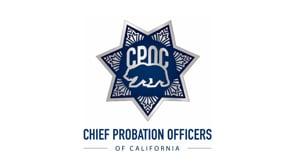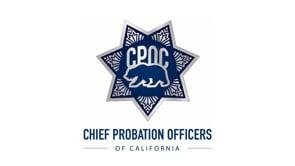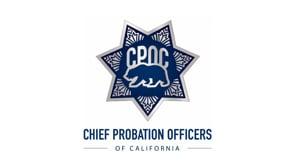2020 CCR Virtual Conference
Elevating the Future of Foster Youth and Families in California
The Chief Probation Officers of California (CPOC) Foundation is pleased to announce that we delivered a modified version of our previously scheduled Fourth Annual CCR Conference virtually! Below is the outline of a series of webinar sessions that took place over the course of four days, June 15 through June 18, 2020.
STC Information: The conference is certified for
total of 10 STC hours (2 hours per session). Please be sure the
fill out the “Special Cert/WRE/Conference Roster & Evaluation”
form (see link below) in order to receive STC credits. Once
completed, be sure the submit the form to your Training
Manager.
STC # 01123324
Special Cert/WRE/Conference Roster & Evaluation
Sessions Presented:
Monday, June 15, 2020: 10:00 AM – Noon
Kick-Off Session – Finding the Balance: Addressing the Trauma-Related Needs of Our Youth, Our Staff, and Ourselves— Even in the Midst of a Pandemic
We kicked off our 2020 virtual conference with an important keynote address from Dr. Isaiah Pickens, founder of iOpening Enterprises and lead author of the National Child Traumatic Stress Network’s Think Trauma 2.0, about how to put our trauma-informed training into practice—especially when we need it most.
Handouts:
Monday, June 15, 2020: 1:00 PM – 3:00 PM
All Hands On Deck: Identifying and Supporting Commercially Sexually Exploited Youth in the Juvenile Justice System
Since 2010, the Los Angeles County Probation Department has been paving the way in the fight against the commercial sexual exploitation of children (CSEC). This session will highlight various initiatives implemented within their county department. Highlights will include: the creation of Los Angeles County Probation Department’s Child Trafficking Unit, the Detention Interagency CSEC Identification and Response protocol, implementation of SB 794 mandates, housing, using the Harm Reduction approach, and more.
SESSION RECORDING: 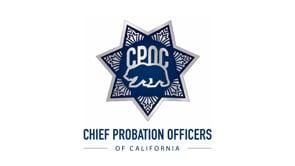
HANDOUTS:
Exploited Youth in Juvenile Justice System PowerPoint
2011-2019 CSEC Training Summary
FRP 4-Year Review
Harm Reduction Probation
LA County Detention Protocol
LA County FRP
CSEC Research Report_Cal State LA - NCYL
ASU Adult Probation Brochure
ASU Parents-Sex-Trafficking-Brochure
ASU School Educators and School Admin Brochure
ASU Teen Sex Trafficking Awareness Training Brochure
Sex Trafficking ASU Health Care Brochure
Sex Trafficking STIR ASU Child Welfare Brochure
Sex Trafficking STIR ASU EMS Brochure TRUST
Sex Trafficking STIR ASU Mental Health Brochure
Tuesday, June 16, 2020: 9:00 AM – 11:00 AM
Providing Stability for Success: Identifying Housing Resources for Non-Minor Dependents
As a youth enters adulthood, it is important for them to have stability in their lives. Housing is an essential component to assist in providing one with a sense of security, so they are able to better concentrate on their goals to prepare for the real world. This session, presented by the John Burton Advocates for Youth, will provide an overview of the various housing supports in California available for current and former probation foster youth. These resources include extended foster care for youth ages 18-21 with out-of-home placement orders, and housing programs and vouchers for former probation youth up to age 24. Attendees will also be familiarized with the state’s homelessness response system and the role of local Continuums of Care (CoC).
SESSION RECORDING: 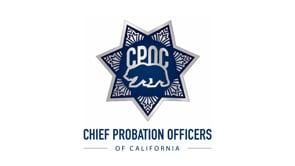
HANDOUTS:
Housing Resources for TAY and Former Foster Youth and Probation Foster Youth
THP-NMD
Provider Roster from JBAY
CalYOUTH Memo Comparing THP-NMD & SILP
Counties Opted
Into the THP-Plus Extension from JBAY
ACIN I-40-15 (THP-Plus Option to Extend Eligibility
Criteria)
ACL 11-85 (Extension of Foster Care Beyond Age 18-
Probation)
ACIN I-07-19 (Judicial Council Info. Sheet About Re-entry of
Former Probation Youth to Transition Jurisdiction)
ACL 17-83 (SILP- Residing with a Parent)
Public Housing Agency (PHA) Contact Info
List of PHAs Administering Family Unification Program
(FUP)
List of PHAs NOT receiving FUP and Eligible for Foster Youth to
Independence (FYI)
Tenant Protection Vouchers for FYI (guidelines if your county CW
works with a PHA that is eligible to receive FYI funds)
Homeless
Housing, Assistance, and Prevention (HHAP) Grant
Allocations
HHAP Info. from
JBAY
Continuum of
Care Contacts from JBAY
ACL 20-45 (Extended Foster Care Flexibilities Due to COVID)
Wednesday, June 17, 2020: 9:00 AM – 11:00 AM
Key to Successful Residential Care: Partnership and Planning?
What are the key steps to ensuring a successful placement? In this session, we will hear from Shasta and Ventura counties about strategies they developed to support placement—including preparing for the CFT and IPC meetings, coordinating with behavioral health, and partnering with short-term residential treatment programs (STRTPs).
SESSION RECORDING: 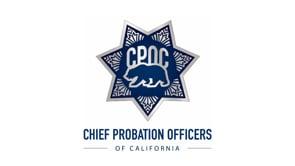
HANDOUTS:
Key to Successful Residential Care PowerPoint
Thursday, June 18, 2020: 1:00 PM – 3:00 PM
Being Gender Responsive: How do You Know if You Are?
Statistics show a staggering over-representation of LGBT/GNCT youth in the juvenile justice system. Recognizing this within your own county may be difficult since data is not always readily available. Responding to youth’s gender when they haven’t shared their gender identity is close to impossible. How do you engage youth? How do you support families struggling with understanding what it means for their child to identify as LGBQ/GNCT? What rights do LBGQ and GNCT foster youth have that you need to be sure to recognize and support? This session will give a broad overview of the available data on LGBT/GNCT youth in the juvenile justice system – including youth who have crossed over from the child welfare system; and highlight effective engagement strategies for working with these youth and their families recognizing the added challenges and discrimination they face.
SESSION RECORDING: 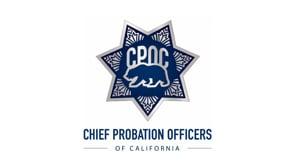
HANDOUTS:
LGBQ & GNCT Youth in the Juvenile Justice and Child Welfare System PowerPoint
https://familyproject.sfsu.edu/
https://familybuilders.org/getREAL.html

